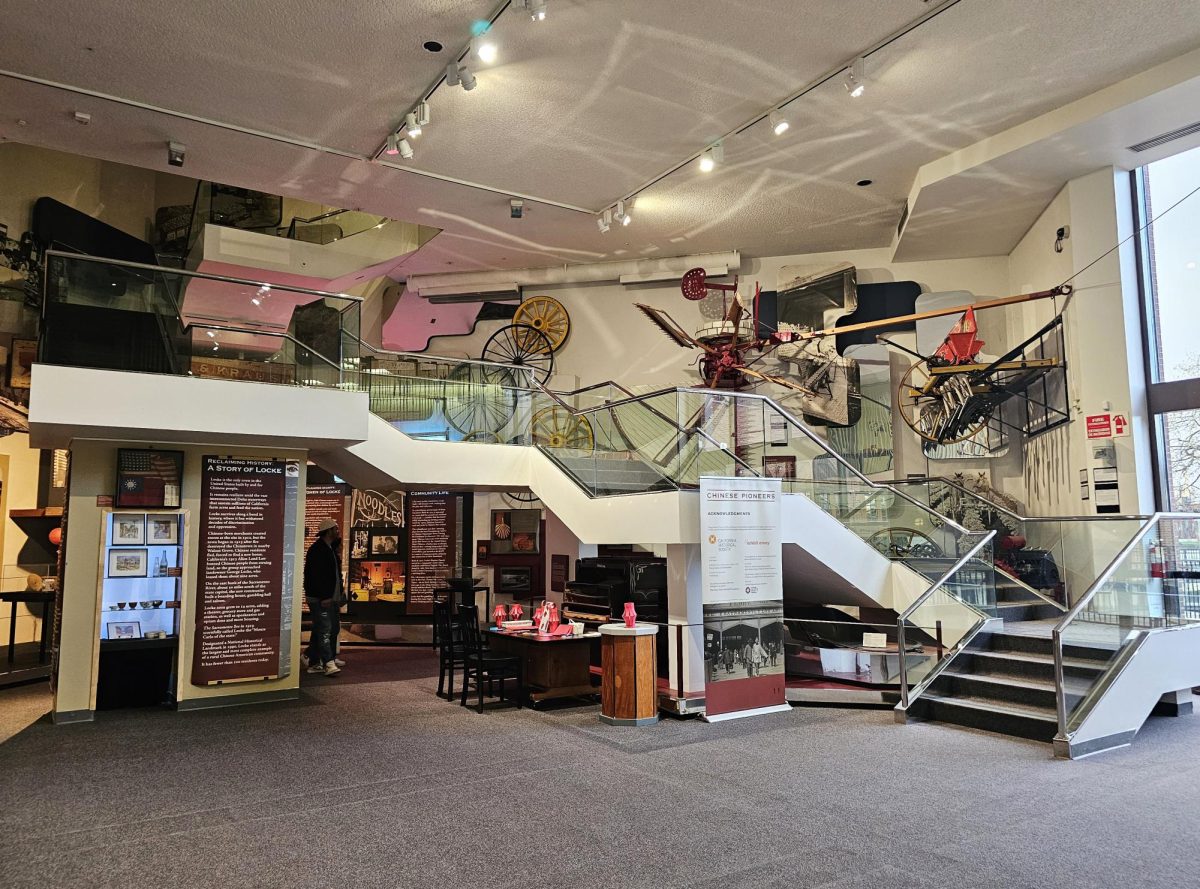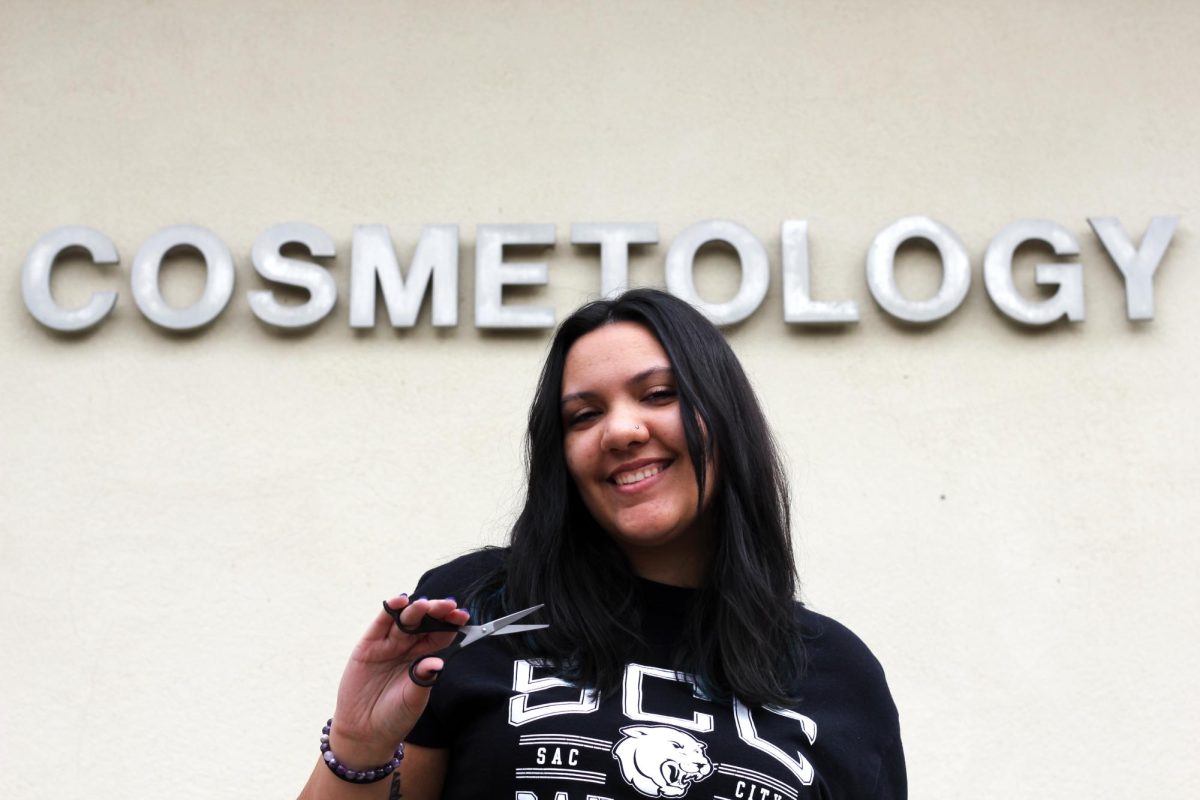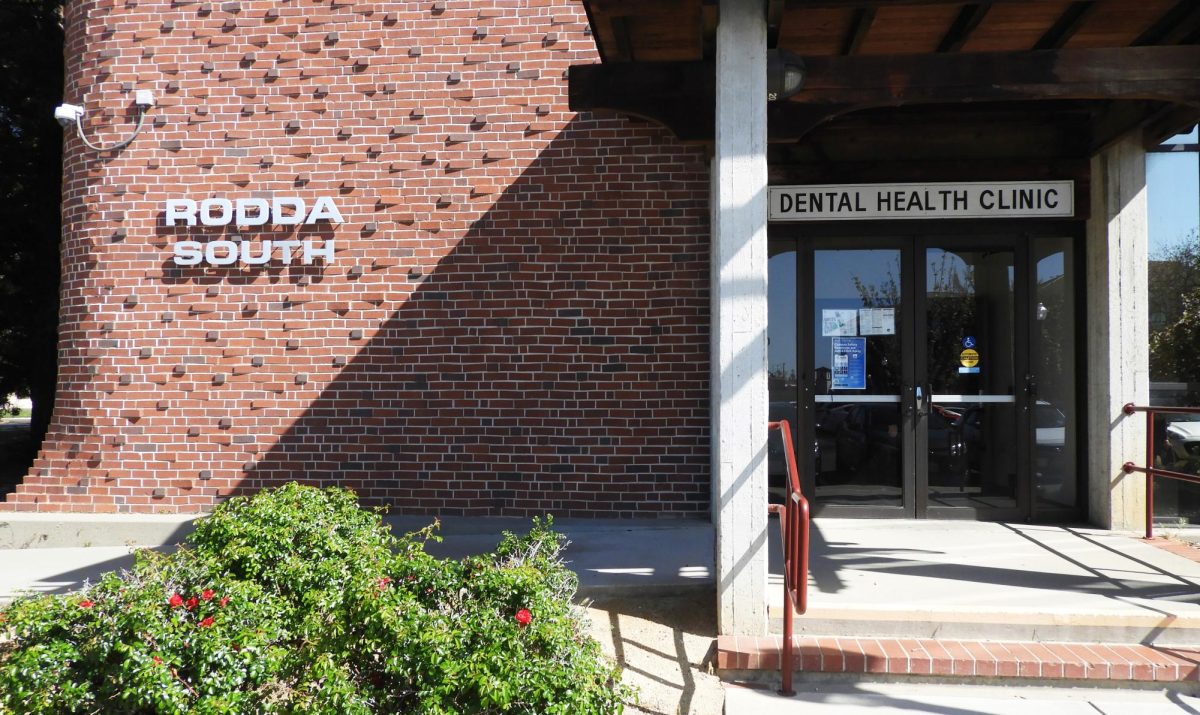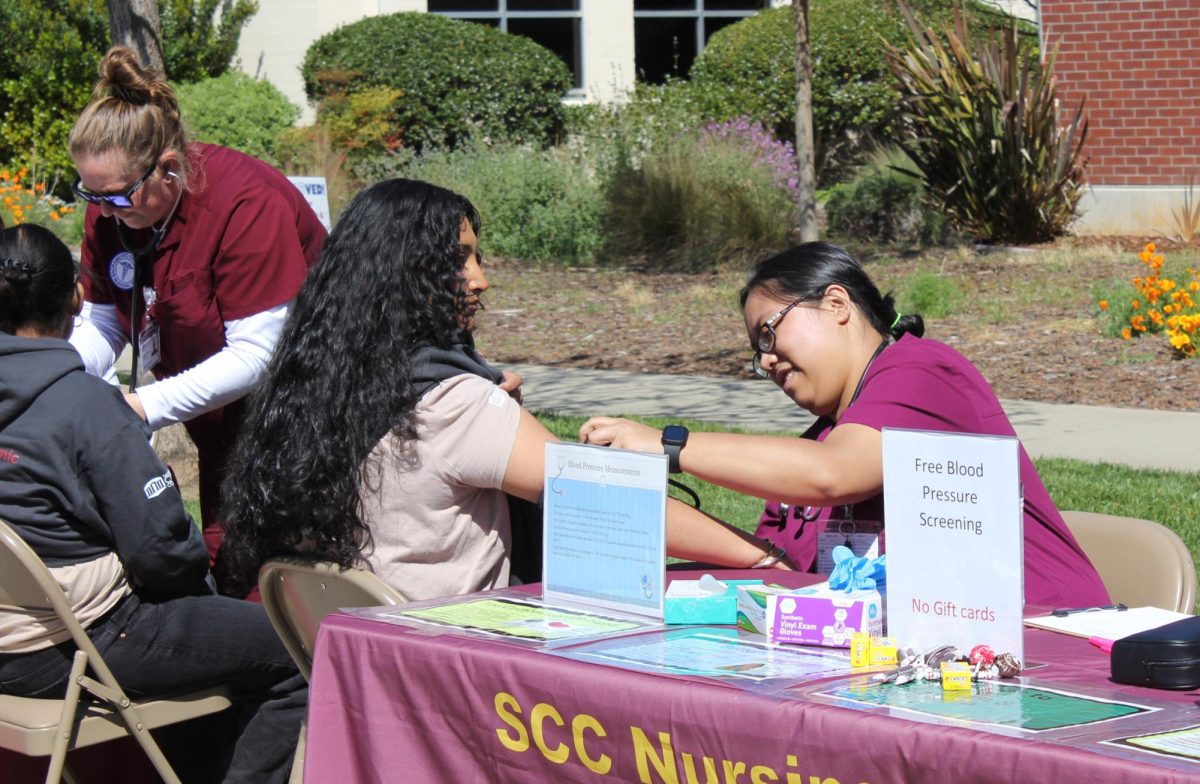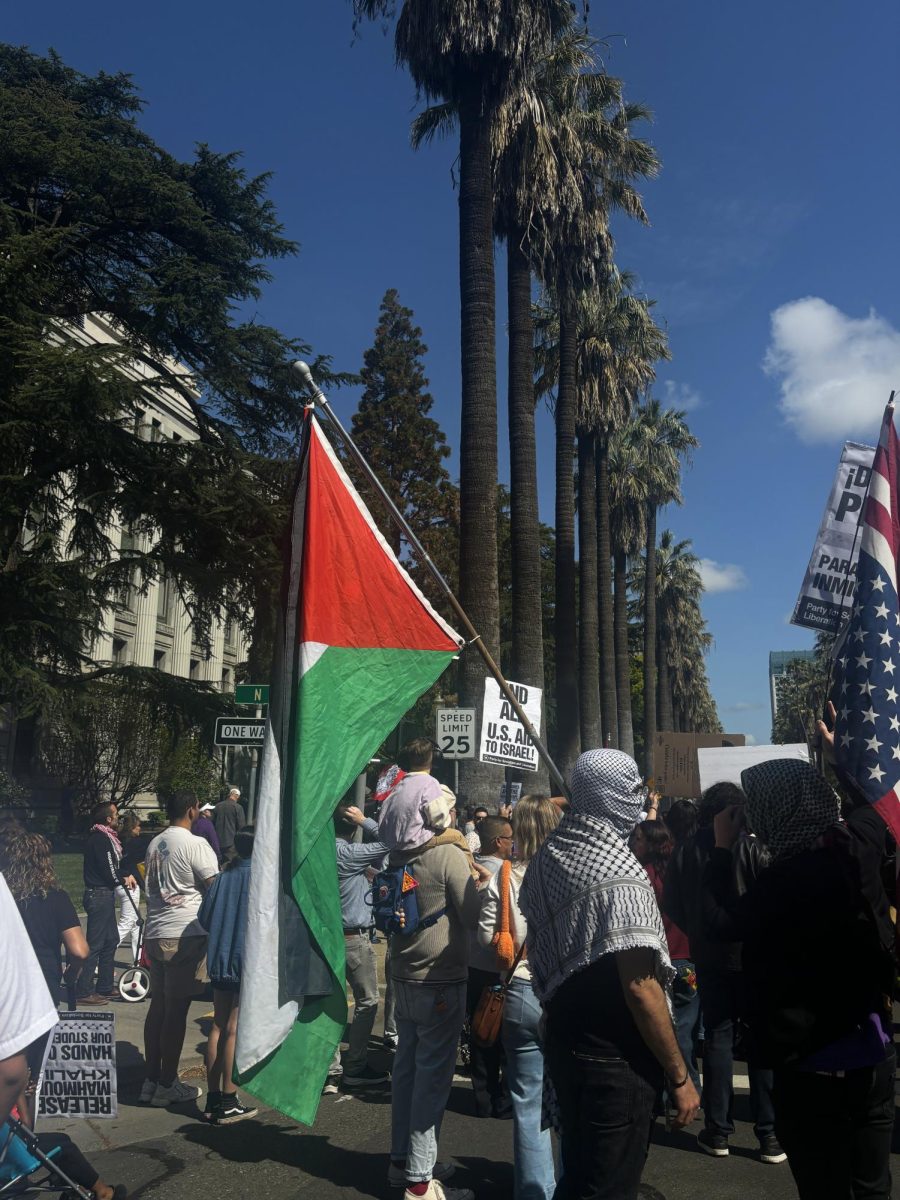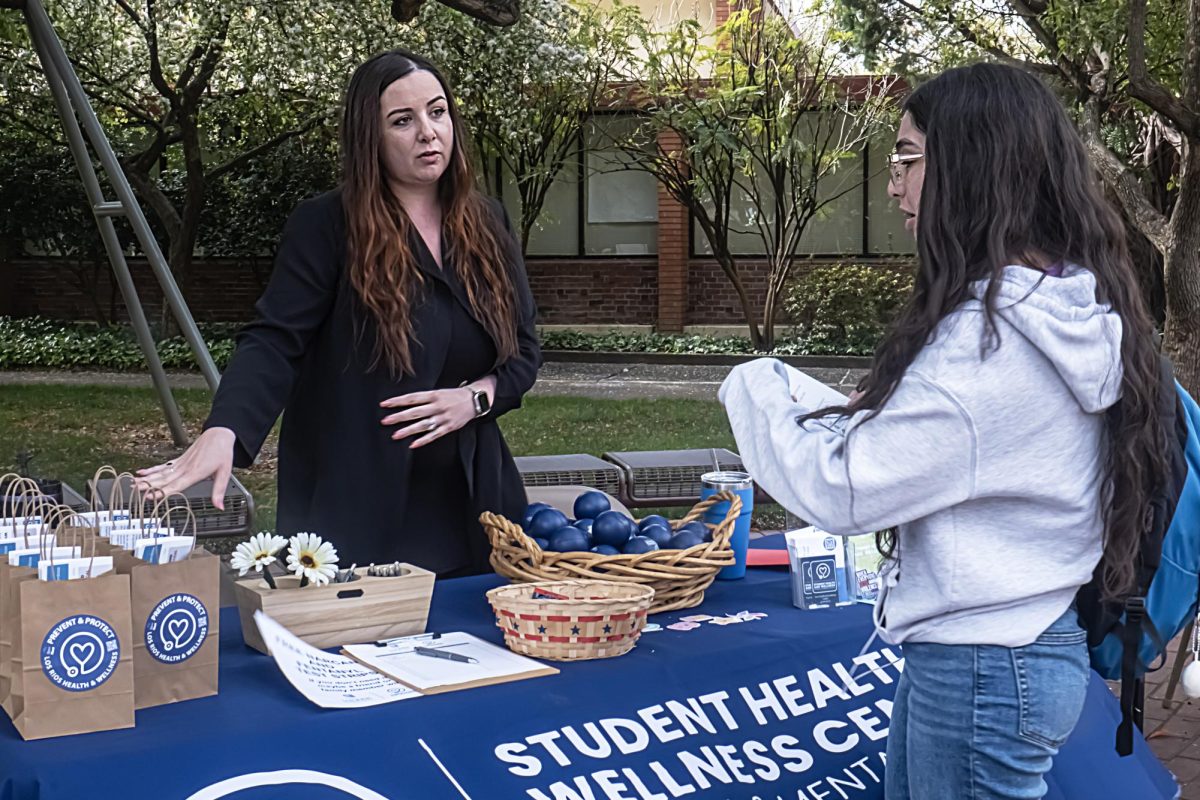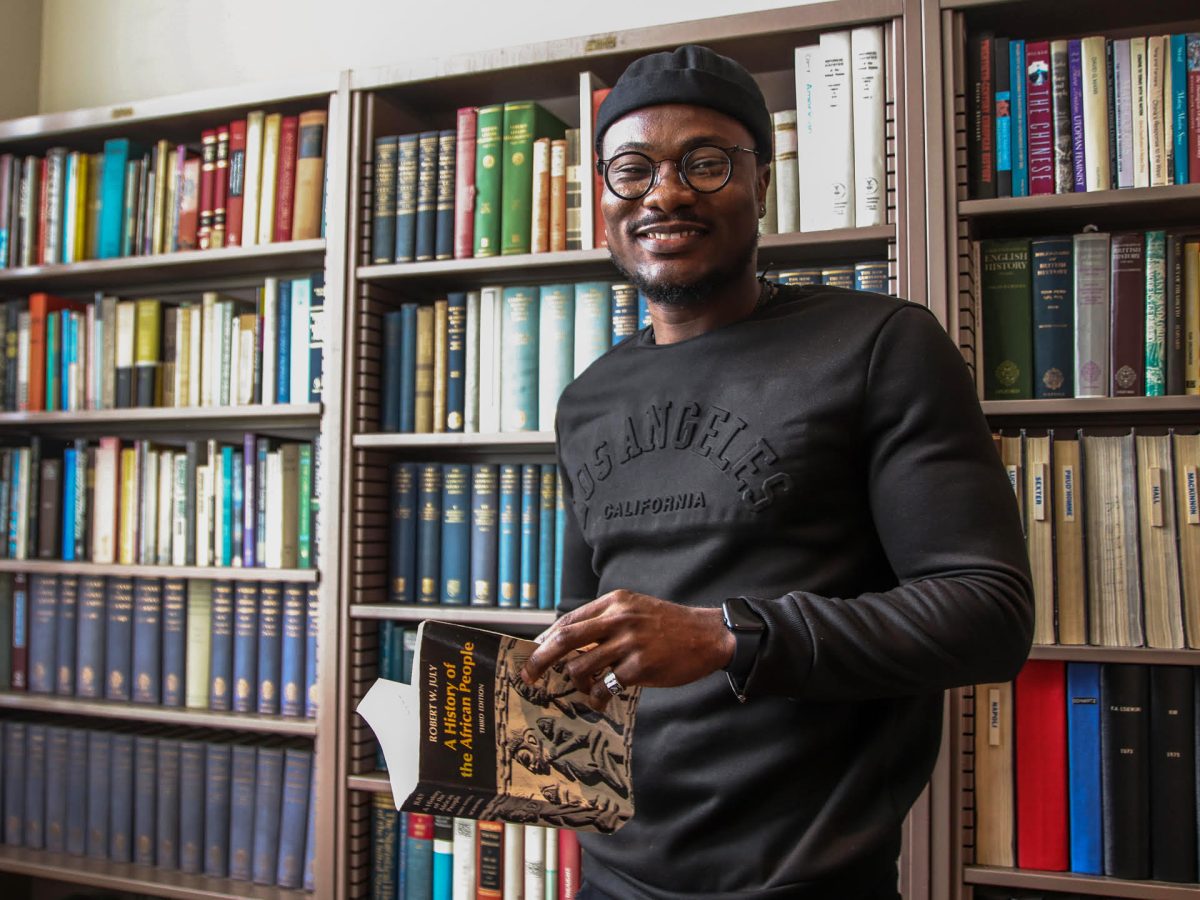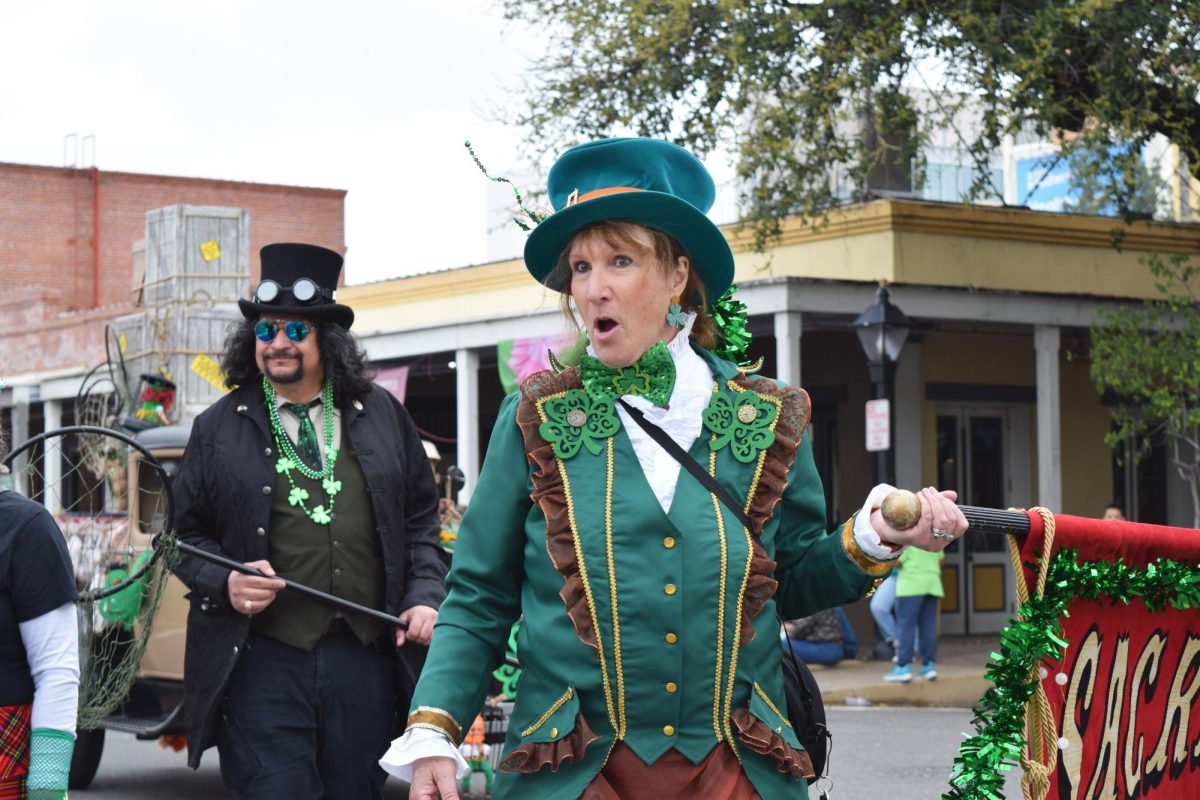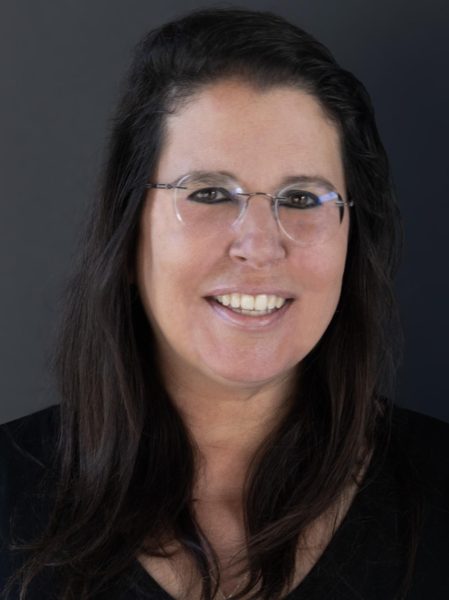UC Davis history doctoral student ibrahim Bàbátúndé Anọ́ba gave a lecture on Pan-African culture for Black History Month to City College’s Psychology 300 class and other students on Feb. 21 in the Performing Arts Center.
The lecture was to expand students’ understanding of the history of West Africa and the history of slavery and colonialism between the mid-19th and mid [to] late-20th century.
Anọ́ba, from Lagos Island, Nigeria, talked about the economics and sophistication of West African societies before European influence and explored the topics on how African and African American realities align.
He views his examination of historical events as vital because, according to Anọ́ba, “The beauty of doing research is to make sure that research actually transitions into changes in society.”
Anọ́ba believes historical groundwork on such topics should not be about just publishing a book, an article or reading stories, but it should be more than that. “Historical research should lead to changes in policies, to correct the errors or injustices of the past,” said Anọ́ba.
The lecture was part of a series held by the Umoja-SBA learning community, which had different speakers come out and participate in Black History Month events, according to Chipo Asche, Umoja-SBA counselor and PSYC 300 professor.
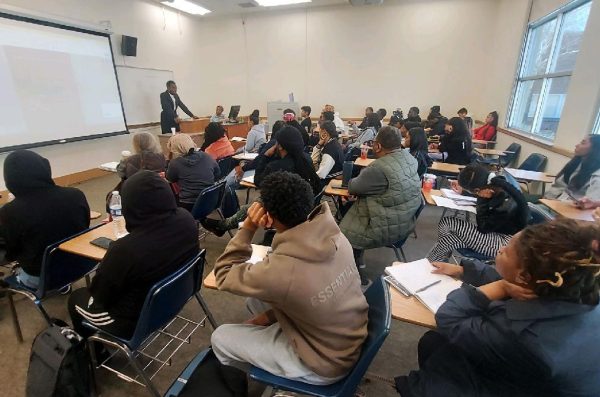
Umoja-SBA is a program offered within the City College ASHÉ Center on campus that helps with the retention, transfer and graduation rate of Black students.
Asche felt that the topics he covered were directly related with his psychology class because it focuses on the behaviors associated with historical patterns of trauma.
“With Anọ́ba talking about the things that happened prior to colonization and the enslavement of African American people, what he was able to show to the students was that things did not start with slavery,” said Asche, “There was an intricate and detailed history both good and bad that was well in full effect and displayed before European colonization and enslavement.”
This was Anọ́ba’s second time speaking on campus, visiting in 2022 to lecture on the topic of African Studies.
Student Valdy Ngassam, administration of justice major, had been at Anọ́ba’s prior lecture at City College and looked forward to hearing him speak on Feb. 21.
“The pre-colonial era is important to talk about, and is not talked about enough, even though it is a part of our African American history,” Ngassam said, “Understanding our history and the truth of our history is learning more about ourselves as African Americans.”
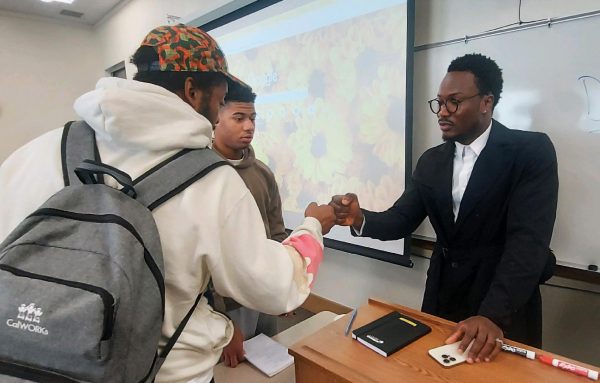
When Anọ́ba was in secondary school he fell deeply in love with politics. He went to Olabisi Onabanjo University to study law as an undergraduate, but once there, changed subjects to political science. Anọ́ba excelled in political thought. “That love for history, the history of political events is my thinking,” said Anọ́ba.
At the graduate level, Anọ́ba completed his masters of research in the history of Africa at the University of Chichester, where Anọ́ba focused on Pan-African history and the African diaspora. This influenced Anọ́ba to take it to the Ph.D level. He was accepted to UC Davis in 2021 to study for a Ph.D. in African History. Anọ́ba’s goal is to become a university professor in the United States and continue his public policy work.
Anọ́ba believes that the reality of Africans cannot be separated from the realities of Black people outside the continent, including in the U.S.
“Many of the predicaments Black people have in Nigeria if you look at it critically,” Anọ́ba said, “Oftentimes, can be some of the predicaments African Americans have in the U.S. even though they are in different spaces, oftentimes there is that line of correlation.”
Anọ́ba went on to say that he believes that Black people’s aspirations were very much the same up until 1960, when the Civil Rights Movement happened in the U.S. and when West Africans countries reached independence.
According to Anọ́ba, “Before that, at the turn of the 19th century up until 1920s or 30’s, Black people in the US, Britain and Nigeria saw themselves as one. They were fighting colonial oppression. After 1960, even though they became independent, and the Civil Rights Movement happened, still some of the things we fight for today bring us together.”
Anọ́ba’s hope from his lecture was that “Students would have more interest in not only the history of African Americians, but also the history of West Africa and the history of African society before colonialism.”
Anọ́ba will be invited back on April 4 to finish his two-part lecture at City College put on by the Global Studies Program and a special collaborative project called Pathway to African-Centered Education. This is a collaboration between GSP and the ASHÉ Center.
The second part will be an “Introduction to The African Diaspora”. This lecture will be about a community of people living outside Africa and forming a community there, so much that they identify distinctly as a people belonging to another society.
Anọ́ba’s goal is to emphasize the connections between our people today and to see that some of the problems we encounter oftentimes have the same systemic roots. The point is, Anọ́ba said, “To regenerate that idea of Pan-African connection that we belong to the same realities and often the same variety.”















